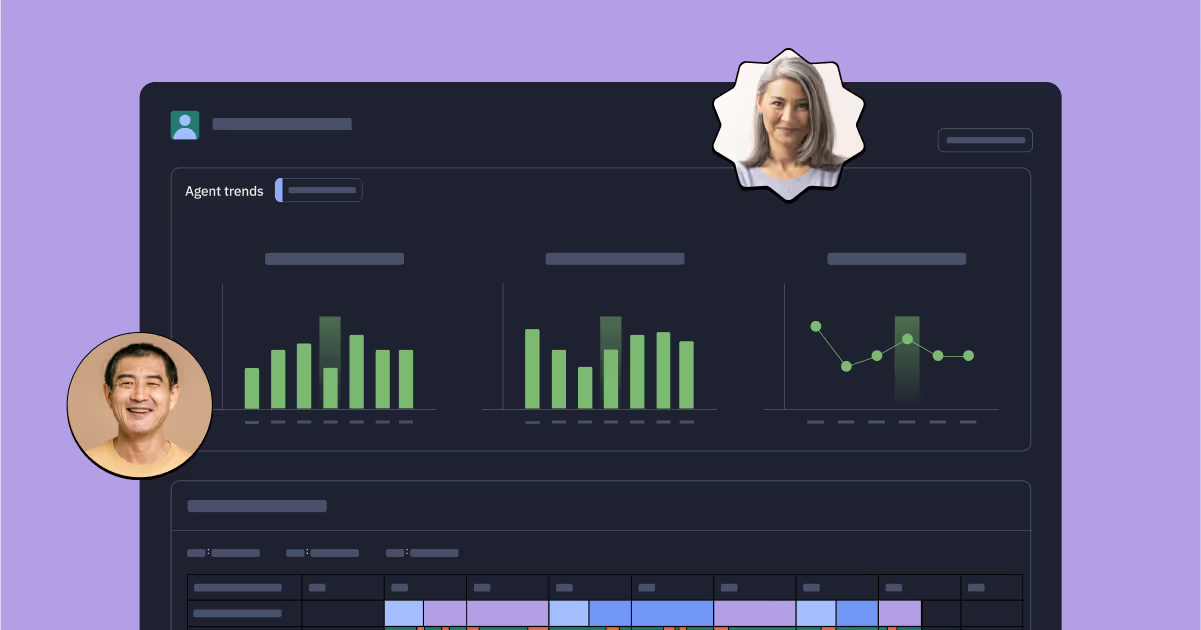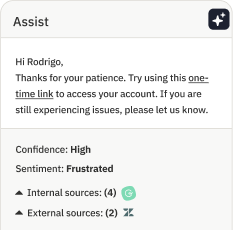Call Center Workforce Management Software - Assembled

Call Center Workforce Management Software
Nearly every business out there today relies on a call center to help them meet a variety of their needs. For example, some businesses might use an outbound call center that tries to make sales calls to various people or organizations. In other cases, companies might have an inbound call center that they use to handle calls that are related to customer service. Regardless of their chosen use, it is vital for businesses to make sure they are able to get the most out of their call centers. In this situation, workforce management software is extremely important.
For those of you who might not know, workforce management software refers to a program that is designed to increase the efficiency of call centers, in more ways than one. For example, workforce management software can be used to handle employee scheduling issues. Particularly when it comes to the seasonality that is usually seen in call centers, call center workforce management software can be used to make sure that the right number of agents are scheduled to work at a given time. Another way that call center workforce management software can be used involves metrics. The greatest advantage of using call center workforce management software is that call center managers can utilize this program to ensure that the call center is meeting its individual goals.
When looking at the workforce management call center, there are several best practices for this software program that everyone has to follow. First, call center workforce management software should be used to handle scheduling issues. Employees should be able to look at the available shifts and then sign themselves up for these slots. Call center workforce management software can be used to handle sick days and vacation requests, as well. This can serve to free up the manager’s time so that they can then focus on other issues. Second, call center workforce management software has to be used to leverage analytics, which might include information on how often calls are escalated, the average time to resolve a call, and the average time between calls. This can help companies to get the most out of their call center workforce management software.
Call Center Forecasting Software
When looking at the best WFM software for call centers, one option that needs to be addressed is call center forecasting software. Call center forecasting software is used to help companies predict changes and shifts in demand for their services. For example: particularly when it comes to retail call centers, the number of calls they receive is going to go up during the holidays, when people are buying Christmas gifts. It is extremely important, then, for companies to make sure that they have the right number of employees on-hand to handle these calls when they come in. This is precisely where call center forecasting software is so helpful.
Companies cannot simply hire more people on the spot to handle these calls. They need to be able to train these individuals to handle these calls appropriately. Therefore, they need to be able to hire them in advance, in anticipation of an increase in call volume. This is where call center forecasting software comes in. With call center forecasting software, call centers are able to look at their historical data, predict when their demand is going to go up, and then hire people accordingly, in order to meet this rise in demand. In this way, call center forecasting software can be used to great effect in helping companies ensure that they have the right people in place when more calls begin coming in.
Field Service Management Software
Another key type of workforce management software to take note of is field service management software. Also known as mobile workforce management software, this is a tool that companies can use to make sure that their employees who are traveling from place to place have access to the right mobile workforce management solutions to meet their needs. They need to be able to address the needs of the customer or client wherever they go, which is what makes mobile workforce management software so important.
When looking at mobile workforce software and mobile workforce solutions, it’s vital to note that these are tools employees can use to accomplish a variety of tasks. For example, they might use them to access documents and files they need to meet the needs of a field service call - or they might use mobile workforce management software to help them complete a sale, showing off the benefits of a certain product or service in the best possible light. With mobile workforce management software, you can make sure that employees and team members are all on the same page, while still providing them with all the tools they need to protect sensitive company information from harm.
Workforce Management Tools
The scheduling issues discussed above are just one of the many things that call centers can use workforce management to solve. When looking at WFM tools, there are several key points to keep in mind. First, call center workforce management tools come in all shapes and sizes. A workforce management app can be used to help employees share files with each other, while other apps might be used to help employees videoconference with one another. There are also physical tools that can be useful for managing employees, such as templates or charts.
The goal of contact center technology is to improve efficiency and organization. Rather than having sticky notes plastered up all over the place, it is good to ensure that there is a way to keep information organized. Call center workforce management tools can also be used to automate certain processes. With so many call center workforce management tools out there, it is important for call centers to make sure they are on the same page with their employees. While some call centers and businesses might be able to get away with using one tool, most call centers are going to employ a variety of workforce management tools. Therefore, it is important to make sure that these tools are all able to communicate with each other. By doing this, call centers can get the most out of their workforce management tools.
Workforce Management Companies
When businesses are looking for workforce management services, they will quickly discover that there are lots of workforce management companies to choose from. Some workforce management companies design software that businesses can use to help handle some of their workforce management issues, while other workforce management companies provide consulting services that help businesses handle their workforce management issues. When looking for a workforce management tool, it is a good idea to think about call center workforce management best practices.
First, always provide agents with multiple options. This includes scheduling issues, and how they handle their calls. This will keep the agents happy and make sure that they are excited to come to work. Next, use workforce management tools to provide agents with more autonomy. They should be able to see their metrics in real-time and be allowed to handle their scheduling issues by swapping shifts with agents directly. Finally, all companies need to make sure they use their call center scheduling tools to cross-train their agents, which will ensure that their agents are equipped and able to handle multiple types of calls. This will allow call centers to cover gaps in their scheduling in certain areas by moving agents from team to team, when necessary.
Workforce Management Software
Workforce management software is very popular in call centers; however, this is only one of the many industries in which it is used. Workforce management software is also used in healthcare. Hospitals will usually have complicated call schedules, which they need to make sure are appropriately covered. Therefore, in healthcare, workforce management software needs to be able to track a completely different set of metrics, as well as handle unique scheduling issues.
Furthermore, it is important to note that workforce management software is only one part of a larger workforce management system. Therefore, those who are looking for workforce management software need to also make sure their software is going to mesh well with the rest of their workforce management system. With the right workforce management software in-hand, businesses will be able to place their employees in a position to succeed. By doing this companies will be able to get the most out of their workforce management software.
Workforce Management Scheduler
When companies are looking for workforce management software, they are often looking for a tool that can help them handle their scheduling issues. And when they are looking for a workforce management scheduler, there are multiple options available to choose from. Some companies like to use a call center scheduler in Excel, highlighting various cells, and then using different sheets in order to make sure that all of the gaps are filled. While it is possible to design a workforce management scheduler in Excel, there are definitely stronger tools out there. With software programs that can help call centers handle sick days, vacation schedules, and shift swaps in an efficient manner, call centers should strongly consider a workforce management scheduler that can automate many of these processes.
Furthermore, it is important to find a workforce management scheduler that will work with call center scheduling best practices. First, all call centers have to analyze the seasonality of their call center demands and make sure that they have enough agents to cover the anticipated demand. Second, they should always hire new agents based on their individual schedule availability. Placing the agents in control will make them feel like a part of the team, keeping them happy. And finally, always make sure that the “call waiting” time for customers is kept to a minimum. While it is okay to let them wait for a few seconds, making them wait for too long is going to cost the business a valuable customer.




